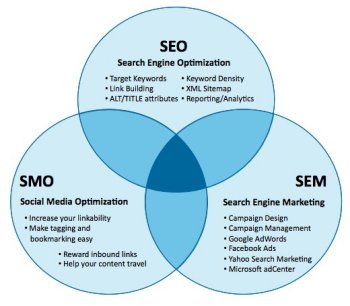Are you not able to get visitors to the website you built? Search engine optimization may be the answer. Search engines are looking for certain content in your site. This article is going to go over what can be done for you to do better with search engines.
When publishing content, it’s best to post multiple short pieces on topics that are similar than it is to post extremely long articles. Long pages don’t carry as much weight with the search engines as short ones do. Plus, a long article means that the specific info that the visitor was looking for will likely be buried somewhere in the long article and the visitor will quickly abandon it for another site.
Code your site well when trying to use SEO. Poorly coded java can make it difficult for spiders to index your pages. When your website contains a lot of Flash content with no text to describe it, search engines won’t see it at all.
Use many types of keywords and even common misspellings. The keywords in your metatags will help search engines match your website with relevant searches. A good example is using the keywords “eyeglasses” and “eyeglases” if your website is all about eyeglasses.
You have to give keyword density some attention when optimizing pages for the search engines. Your keyword content on any given page should not exceed 20 percent.
Anchor Text
Make sure you select relevant keywords to use in your anchor text when posting an internal link. Many people make the mistake of using generic links such as “click here”. Customize your links using keywords for added SEO benefits. Spiders focus on keywords, so if you pick out the most appropriate keywords for your content, they will count your anchor text towards your overall relevancy.
When choosing a domain name, try and pick an address that has one of your keywords included. This can help make it easier for people to find your website. Remember that in order to take advantage of your full target demographic, your website must be easily accessible via search engines.
Use header tags. Sometimes a header can be really large, but CSS can be used to reduce the size. When it comes to ranking websites, search engines use headers. Use the H1 and H2 tags to highlight important things about your product or service so that the engines crawl something worthwhile.
Search engines may have difficulty understand dynamic language and session ID names. Keep this in mind when you create your URLs. Web crawlers are not designed to crawl these kinds of pages, so make your site’s directory structure and page names are keyword-friendly.
Search Engines
In order to really increase your PageRank, you need to not only get visitors to your site, but keep them there. There is more and more evidence available suggesting that how long a visitor stays on a site affects their PageRank, according to Quantcast scores. impacts its PageRank. Message boards and forums can encourage visitors to stay on your website for a long time.
Using Flash is not a good idea when you are optimizing a site for the search engines. Flash may take a little while to load and then won’t be able to be gone over by search engine crawlers. This means that a Flash file’s text won’t get to be indexed. To optimize a site for the search engines, content must be visible and search engine friendly.
Mastering the art of search engine optimization means that you should also understand all of the different types of social media that are popular. Social media sites go far beyond just Facebook, Twitter and Pinterest. Social networking sites and groups often have a specific focus and niche. Join the sites that relate to your business and use them to promote your products and services.
Improving your description tags will also increase your search engine ranking, which in turn will increase the number of visitors your site receives. Don’t overdo it – 30 words at the most. You should never go higher than 100 KB on the page.
Take the initiative to request that a non-profit or educational site link back to your site content. Your site will receive more favorable treatment when search engines see that your site has received good quality links. Provide useful content that will encourage quality websites to feature links to your site. If your content is useful, other websites will want to link to you.
Site Map
Include your keywords in the site map that you build. A site map shows you all of the available areas of your website to your viewers. In addition, it gives a simple access point so that these people will be able to locate what they are searching for. Site maps are used by search engine bots to find and rank websites.
Create a cutting-edge podcast. Podcasts are audio or visual content, can be streamed live, and contain information in which the customer is interested. Podcasts are becoming very popular with both users and webmasters. You simply need to grab a web cam and microphone, and start recording. The search engines then are able to grab your podcast descriptions.
If your website includes audio and video content, you should consider including detailed transcripts. When you give a transcript, the search engine will find it as well.
Search engine optimization is real. Use these tips to take it to another level. More and more people will discover your website. Take some time to apply what you’ve learned here. You will see results in no time.

Leave a Reply